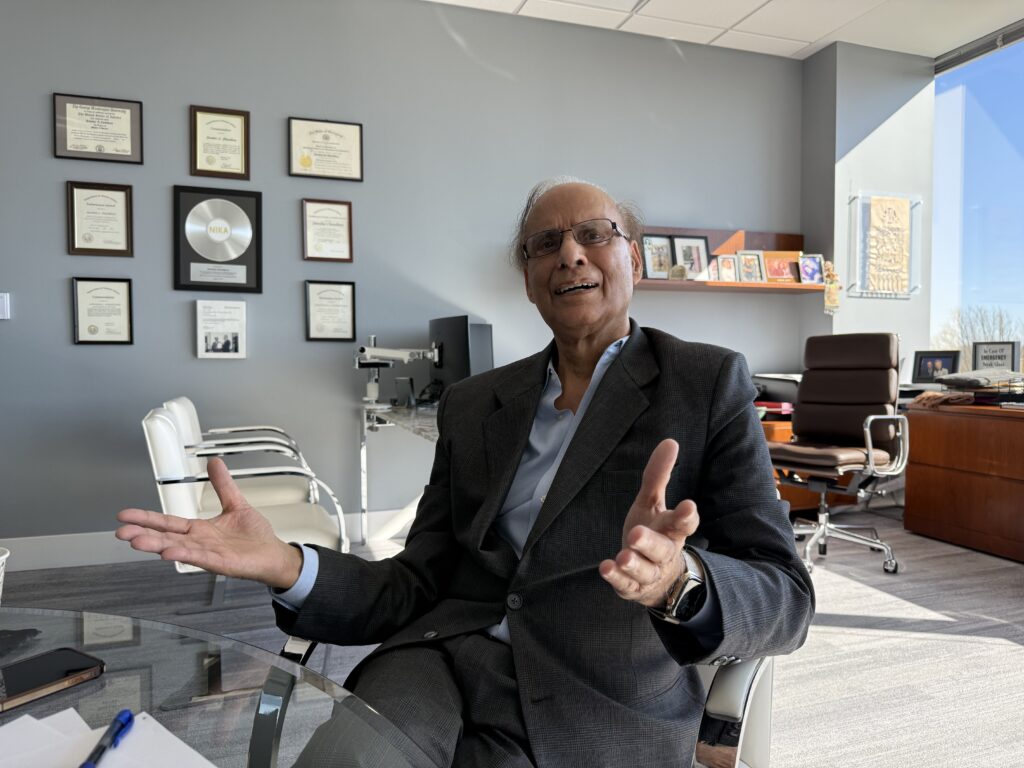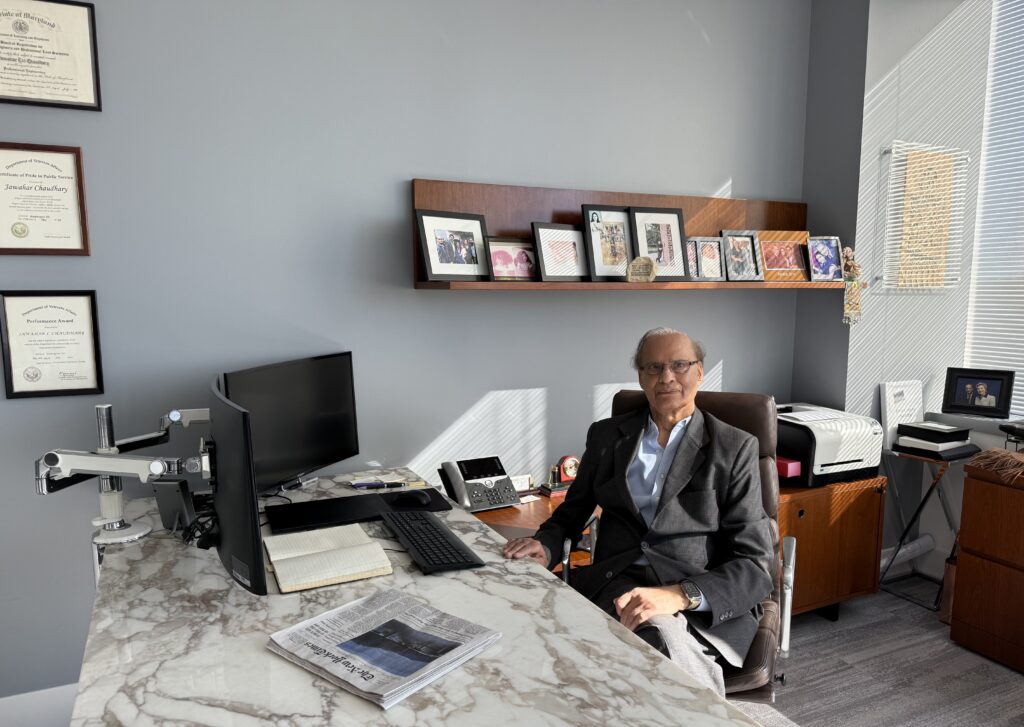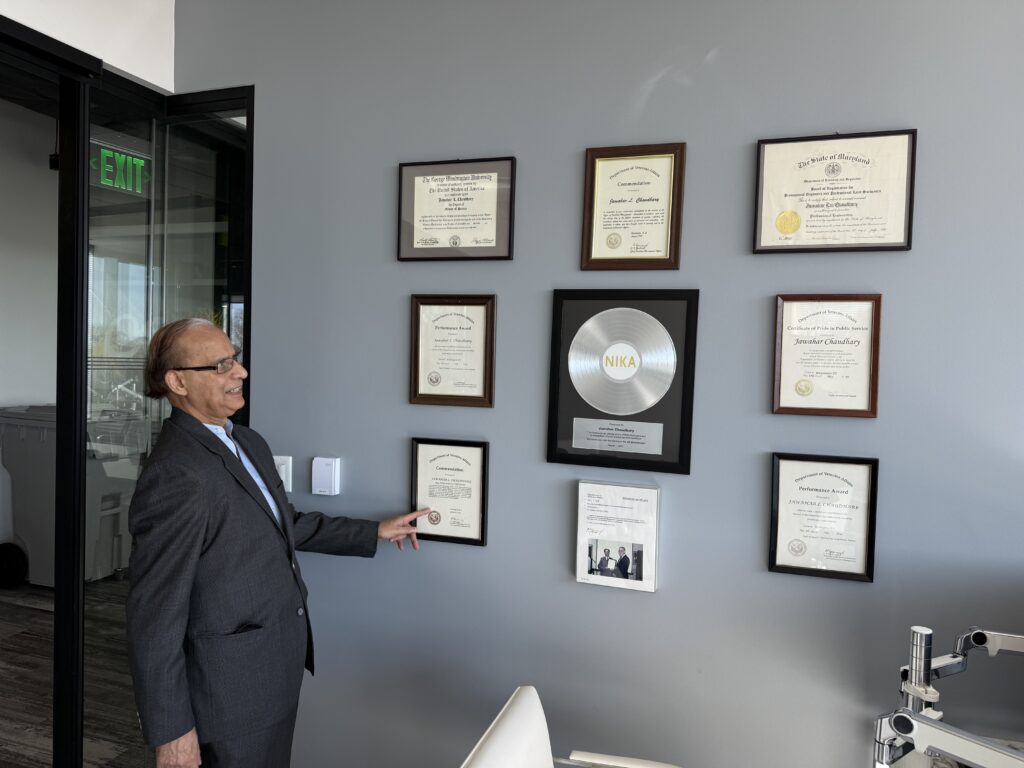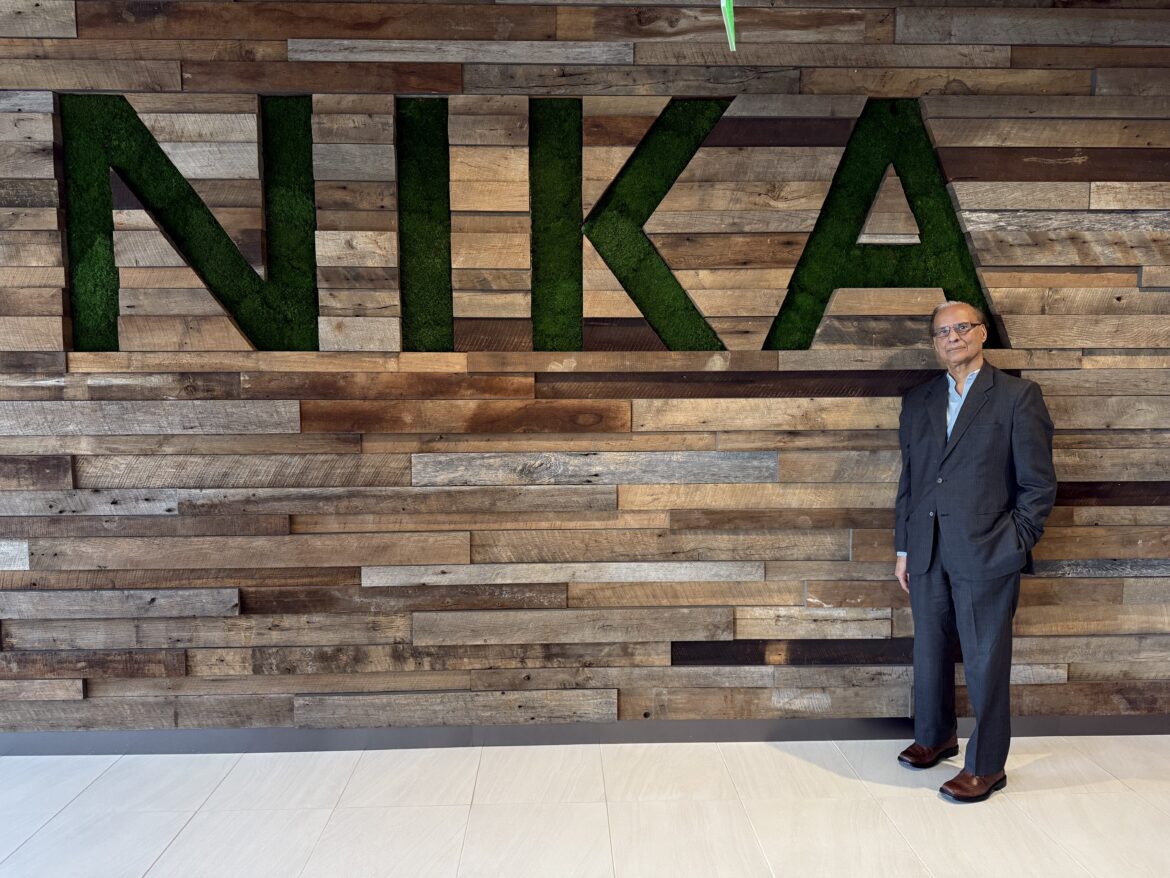From surviving the hardships of India Partition and coming to Delhi as a refugee to building a successful engineering and project management firm in the U.S., this is the inspiring journey of an immigrant entrepreneur, Founder & Chairman Emeritus of NIKA, Jawahar Chaudhary.
Arriving in America in 1963 with humble beginnings, Chaudhary pursued education at Howard and George Washington University before working in government engineering roles. Determined to create something of his own, he founded NIKA in 1998, leveraging minority business programs to secure federal contracts. With his son Kabir’s leadership, the company grew to nearly 300 employees, serving the Department of Defense and expanding internationally. In this exclusive interview with South Asian Herald he spoke about resilience, vision, and the power of hard work.

Can you talk about your early life in Delhi, your family, and how you came to the United States?
I was only three years old when the Partition of India took place in 1947. My father and his two older brothers were running a small business, but after Partition, our family was separated. My father brought his six children and my uncle to Delhi, where we struggled to make ends meet. At the time, he was in his 40s and found it difficult to secure a job, so we lived in poverty.
My eldest brother, who was 19 years older than me, got a job in 1948, and we all survived on his salary. In 1962, he had the opportunity to come to America for work. He was married with two children by then, but he always had a vision to uplift our large family. A year later, I followed in his footsteps and arrived in the U.S. in 1963. At one point, three of his younger brothers were also staying with him and my sister-in-law. He did us a great favor by supporting us. Our beginnings were humble—we were a family of eight living in a single room in Delhi—but those struggles shaped my determination to succeed. I pursued my education at Howard University, earning a degree in Mechanical Engineering, and later completed my master’s at George Washington University.
What happened next?
I was only 19 when I arrived in the U.S. After completing my bachelor’s and master’s degrees, I worked for small companies, but I wasn’t satisfied. Eventually, I joined the DC government as a mechanical engineer and worked there for 10 years. Later, I transitioned to the federal government, spending 16 years with the Department of Veterans Affairs. Over time, I moved into project management, where I gained valuable experience in executing large-scale projects, particularly in hospital and healthcare infrastructure. It was a turning point for me—I realized that while my career had progressed steadily, I wanted to do more. I saw other Indian entrepreneurs thriving and thought, Why not me?

How did you transition from engineering to entrepreneurship? Why did you start NIKA?
At a certain point, I knew it was time to take a leap and start something new. When my office at the Veterans Affairs (VA), announced a workforce reduction, I saw it as an opportunity. With careful negotiation, I retired with a pension. I told my family and brothers not to discourage me—I was determined to succeed or learn from failure on my own terms. I launched my own consulting firm at the end of 1997, initially under my name, JC Consultants. On February 5, 1998, the company was officially incorporated as NIKA. I also explored opportunities within the federal government’s minority business programs, specifically the 8(a) program.
How did that journey go?
Through networking, I met a retired official from the Small Business Administration who guided me through the certification process. In 2001, I obtained my 8(a) certification, and soon after, the Department of Veterans Affairs awarded me a five-year, $3 million contract. Once that contract ended, I got more projects, particularly with medical centers. My family and I were overjoyed as the business expanded. We provided a range of engineering services, including mechanical, electrical, plumbing, civil, and structural engineering.
How did your son Kabir become involved in NIKA?
While traveling to Canada, my son Kabir, who had recently graduated from college, expressed his interest in joining the company. From the day he stepped in, his vision transformed NIKA. He had a strategic mindset and wasn’t afraid to take risks. His leadership has been instrumental in our growth. A Harvard graduate, he brought fresh ideas and expanded our reach. Today, NIKA has nearly 300 employees, with operations in Virginia, Texas, Hawaii, and even international locations. Most of our work comes from the Department of Defense, a testament to our expertise and reputation.

Has your business been impacted by recent policy changes under the Trump administration?
Since our contracts primarily come from the Department of Defense, we haven’t been directly affected yet. Our contracts have been awarded. However, being in government contracting, we remain cautious. Policies can change at any time, and as a business, we must adapt. We are keeping our fingers crossed that our contracts will continue.
What life lessons have you learned over the years?
I have built a strong reputation in both government and private industry, and I’ve been running my own company for the last 27 years. I believe honesty and integrity are key to success. It’s important to respect the culture of the country you live in. I always salute the American flag because this country has given me and many others incredible opportunities.
In my company, employees respect me and affectionately call me “Mr. C.” The younger generation has a different approach to success, but my advice remains the same: do your homework, be honest, and never try to cheat the system. Many Indian CEOs have achieved great success, particularly in the IT sector, because they understand the value of hard work and ethical leadership.
What recognitions have you received throughout your career?
During my time with the VA, I consistently received performance certificates, but the one I hold most dear is the Engineer of the Year award. It remains a significant milestone in my professional journey.






